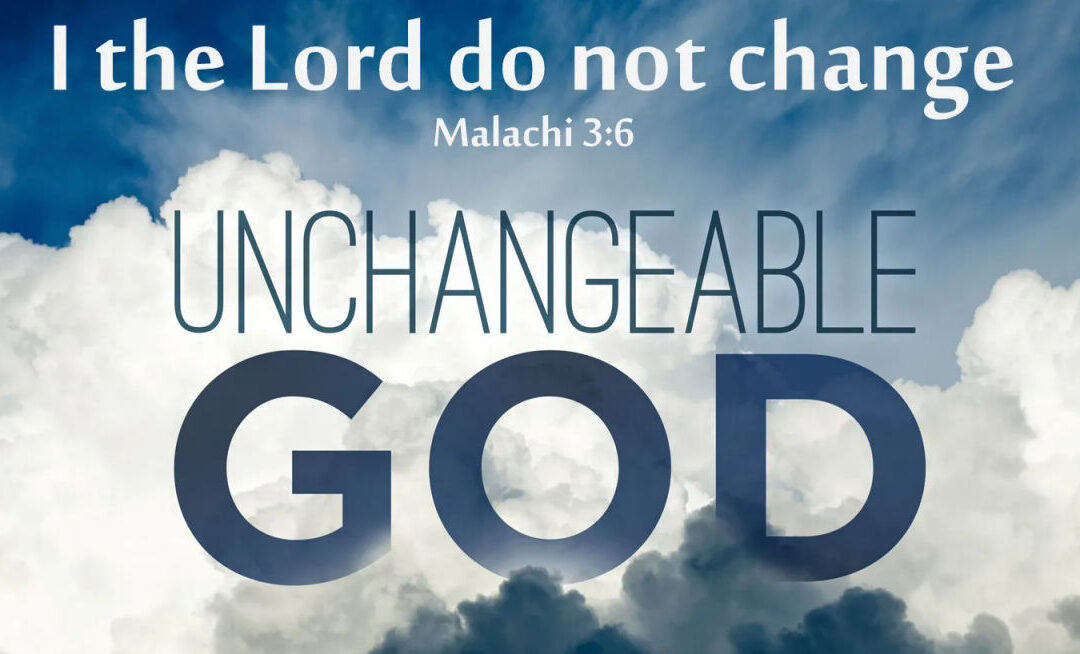“For I am the LORD, I change not; therefore ye sons of Jacob are not consumed.” (Malachi 3:6)
The prophet Malachi proclaimed to the nation of Israel that they were guilty of breaking covenant with their God. He pronounced that the priests had grown corrupt and turned from his ways. He also warned that God had a number of complaints against his people for their disobedience and faithlessness (Mal. 1:6-3:21). In short, Malachi declares to the people of God that they need to repent for not upholding their covenant vows.
And yet out of the midst of the prophet’s pronouncements there arises an element of hope: “Behold, I will send my messenger, and he shall prepare the way before me: and the Lord, whom ye seek, shall suddenly come to his temple, even the messenger of the covenant, whom ye delight in: behold, he shall come, saith the Lord of hosts,” (Mal. 3:1).
How can this be, considering the mounting transgressions of God’s people? This can be… this is… because God determined it would be so in his preordained will. This light of hope piercing the darkness is none other than the reminder that God promised redemption through the Lamb that was slain before the foundation of the world. This promise of a Redeemer was first spoken of in Genesis 3:15 when man initially broke covenant with God. Here in Malachi 3 we are simply reminded that the fulfillment of this promise does not depend on man, for this promise is based on a God who does not change and his everlasting covenant.
Though the people sin, though they change, though they act wickedly, though they are not faithful, though they reject his law, though the priests corrupt his word, still God is always covenantally faithful. Because this refining fire, this God of light, this singularly holy one, I AM that I AM, does not change. He is the same today as he was then and as he ever will be.
God rightly and justly accuses his people of not keeping his ordinances, of not repenting, and of even robbing him of what was rightly owed him. These sons of Jacob were sinners. They were covenant breakers. God had every right to turn his back on them.
But he did not. And he will not. God performs and fulfills his promises because his Word is as everlasting and unchanging as he is. His covenantal promises flow from his character which is everlasting and unchanging.
In our passage here God speaks of himself by his covenant name Yahweh to reference his unchanging nature and demonstrate the security of his eternal covenant. He is LORD, the everlasting I AM who never changes.
The immutability of God is not merely some theological idea. It also has a very practical dimension to it. This truth, praise be to God, is the unshakable foundation of our faith that makes our calling and election sure.
Contemplations:
- Lord, open my eyes to a greater understanding of the ramifications of your unchangeable nature and the unchangeable Christ as critical and essential pillars of my faith.
- Help me more fully grasp this truth, Lord, that it is faith in the immutable God who invaded the fragile nature of my changing world that saves me. Hebrews 13:8 says of your everlasting nature, “Jesus Christ the same yesterday, and today, and forever.” Your immutable love demonstrated to me through Christ should cause me to love you sincerely, for I can trust an unchangeable, unwavering God.
- As a Christian, I rest in the blessedness of being in a secure, unchanging relationship with the God of the universe and his Christ. I see why the Apostle Paul says, after explaining election in Romans 8:31, “if God be for us, who can be against us?”
- What is my response to this unshakeable relationship? I must serve you, Lord Jesus, who has saved me, and serve you in holy duty. “Abound in the work of the Lord, forasmuch as your labor is not in vain in the Lord,” (1 Cor. 15:58). My labor in the kingdom is not in vain. My work for Christ is not in vain. I labor for the kingdom and the King, for which there is a sure hope of reward. John 6:27 says, “Labor not for the meat that perishes, but for that which endures to everlasting life.”
Further References for Malachi 3:6:
Num. 23:19; James 1:17; Lam. 3:22; Hebrews 13:8


